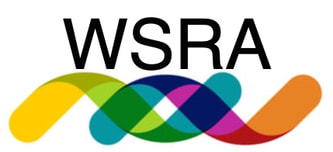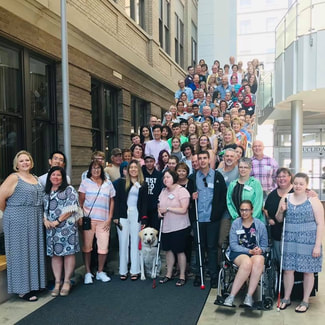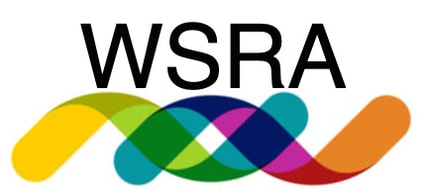|
WSRA serves as a centralized portal to connect researchers and clinicians, coordinating their efforts to quickly and effectively develop treatments and a cure for Wolfram syndrome. WSRA supports relationships between researchers while aligning scientists, clinicians, patients, governmental and non-profit agencies to further efforts towards effective Wolfram Syndrome treatment. |
Together we are Stronger
About Wolfram SyndromeWolfram syndrome (WS) is a rare genetic disease that occurs in approximately 1/200,000 to 1/500,000 people. The typical presentation of WS is insulin dependent diabetes by age 5 to 6, optic nerve atrophy with profound vision impairment or blindness by age 15 to 20, and other medical issues including, but not limited to, diabetes insipidus, deafness, and neurodegeneration. Death occurs by age 30 in approximately 50% of people with Wolfram syndrome. Some mutations in WFS1, the gene that causes WS, can cause a milder form of this disease. There are many potential mutations of the WFS1 gene that result in Wolfram syndrome. Each mutation may manifest as a different presentation of the disease with a different level of severity. While some WFS1 mutations are more common than others, there is no single mutation that if corrected, would treat the disease for all WS patients. The ultimate goal for treating WS will be to correct individual mutations within the WFS1 gene. In the meantime we search for strategies to correct the disease process that occurs in the cell as a result of WFS1 mutations. The symptoms of WS are caused by dysfunctional wolframin, the endoplasmic reticulum (ER) transmembrane protein encoded by the WFS1 gene. Wolframin appears to help fold other proteins properly and maintain proper calcium levels in the ER. Without fully functional wolframin the Unfolded Protein Response (UPR) is triggered, misfolded proteins accumulate, calcium leaks into the body of the cell, and ultimately the cell dies. The cells most affected in WS are insulin producing beta cells and neurons. The Power of Wolfram syndrome Although Wolfram syndrome is an ultra-rare genetic disorder, its constituent medical components (e.g. diabetes mellitus, deafness, and retinal degeneration) and underlying ER pathophysiology are individually present in many more common diseases. Consequently, novel treatments designed for WS may have broader implications for more common medical conditions related to ER stress and dysfunction. Thus, by leveraging the tools and therapeutic efforts targeting Wolfram syndrome, researchers may very well identify novel treatment modalities for more prevalent disorders such as diabetes mellitus and neurodegenerative diseases. |
Current Treatment Strategies
Stop Progression of the DiseaseCurrent research strategies include the use of -
|
Repair Damaged TissueRegenerative treatments
|
Correct the Gene DefectGene therapy
|







